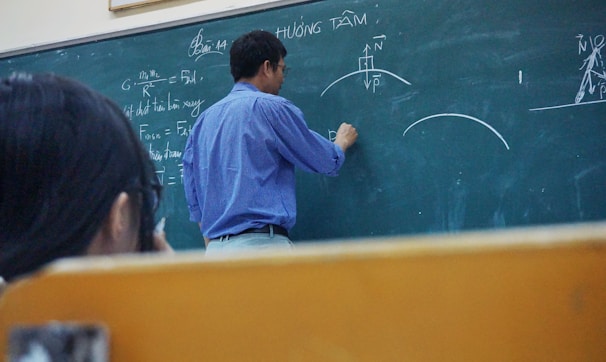I had relations with a student in my class.
CONFESSION


It's a stark reminder that professional boundaries exist for a reason and crossing them has severe consequences. Lesson learned: age doesn't exempt you from ethical responsibility.
Disclaimer: This article aims to address a sensitive issue regarding ethics and professional conduct in an educational environment. Names and specific situations are hypothetical.
It reads like a scene from a dramatic TV series, but the consequences are all too real. A university professor engaged in a sexual relationship with a student, tried to justify it because they were both adults, and then faced the music when the student reported it. No, this isn't a plotline from a binge-worthy show—it's the kind of ethical quagmire that can ruin careers and tarnish reputations.
It Started With A Flirt
So, here's the lowdown: a 30-something professor and a non-traditional, equally adult-ish student exchange what could only be described as "spicy" texts. A few winks and fire emojis later, they're at her place. Sounds like a steamy romance novel, except it's not. It's a glaring example of professional boundaries being crossed. Despite both being mature adults, the power dynamics in play were anything but balanced.
Rules are Rules, Even When You Think They Don't Apply
Fast forward to the end of the semester. The student reported the relationship to the university. The professor admitted it, and HR swiftly handed down the ultimatum: Resign or face a full-scale investigation that would likely lead to termination. You might think, "Well, they were both adults, and there was no harassment reported!" True, but that doesn't mean it's okay. The university policy explicitly prohibits relationships between professors and students in their class, period.
Most-Liked Comment: "Dude, you're not just breaking a rule, you're shattering trust. This isn't a game; it's someone's education and your career. Come on!"
The Fallout: A Life in Pieces
So, what happens when you find your life spiraling because of bad choices? Our hypothetical professor now faces professional ruin and a myriad of uncomfortable conversations—with family, friends, and students who will inevitably wonder where he vanished to. Not to mention the emotional turmoil that he described as an "unending amalgam of self-loathing, guilt, and shame."
Most-Liked Comment: "Oh, man, this is a hard lesson to learn. You reap what you sow, and now you've got to find a way to rebuild from zero."
Is Redemption Possible?
It's human to err, but it's also human to face the consequences. If our professor friend is looking for a road to redemption, it's going to be a long and rocky one. Professional counseling could help him understand the psychological motivations behind his poor choices. Legal advice could guide him through the labyrinthine world of academic ethics. But most of all, some serious soul-searching and active amends are needed.
When it comes to careers that involve a power dynamic, especially in education, crossing the line isn't just about breaking a rule. It's about compromising trust, ethics, and the very foundations that such careers are built upon. And while there's a path to redemption, it's one that requires confronting the consequences head-on, with honesty and a strong commitment to do better. Lesson learned: Keep your emojis in check, and your ethical boundaries rock solid.
